|
|
Last Modified on May 10, 2025
You may be wondering, “How much does a trust cost in North Carolina?” If you’re considering establishing a trust, understanding the associated costs is crucial. The expenses can vary based on the type of trust and its complexity.
Understanding Trusts
A trust allows a third party, or trustee, to hold assets on behalf of beneficiaries. In North Carolina, there are several types of trusts that individuals and families commonly use for estate planning, asset protection, and wealth management.
Here are the main types:
- Revocable Living Trust: This flexible trust allows the creator (grantor) to retain control during their lifetime and make changes as needed. It avoids probate and ensures a smoother transition of assets upon death.
- Irrevocable Trust: Once established, it cannot be changed without the beneficiary’s consent. It provides strong asset protection and potential tax benefits, but requires giving up control.
- Testamentary Trust: Created through a will and only takes effect after the grantor’s death. Common for managing assets for minor children or dependents.
- Special Needs Trust: Designed to benefit individuals with disabilities without jeopardizing eligibility for government assistance like Medicaid or SSI.
- Charitable Trust: Used to donate assets to charity while receiving tax benefits. Common forms include charitable remainder and charitable lead trusts.
- Spendthrift Trust: Protects a beneficiary’s inheritance from creditors or poor financial decisions, often used when beneficiaries need long-term oversight.
- Asset Protection Trust: Shields assets from creditors and legal claims, is often irrevocable, and may include provisions that limit beneficiary access.
- Medicaid Trust: Helps preserve assets while qualifying for Medicaid long-term care benefits, typically set up years in advance.
Cost Breakdown of Setting Up a Trust in North Carolina
There are several different costs that are often associated with setting up a trust in North Carolina. When working with a lawyer, it is always a good idea to discuss any fees upfront so there are no surprises during the process.
Typically, the fees include:
- Hiring an experienced estate planning attorney is crucial to ensure your trust is legally sound and aligns with your goals. Attorney fees can vary based on the complexity of your estate and the attorney’s experience. Simple trusts are generally used for more straightforward estates and cost much less than complex trusts. Complex trusts are referred to as estates with multiple properties, businesses, or special provisions.
- Document Preparation and Additional Legal Fees: Beyond the trust itself, comprehensive estate planning often includes additional documents. Some law firms offer packages that include all of these additional documents.
- Pour-Over Will: Ensures any assets not titled in the trust are transferred upon death.
- Durable Power of Attorney: Designates someone to manage financial affairs if you’re incapacitated.
- Healthcare Directives: Outlines medical care preferences and appoints a healthcare proxy.
- Funding the Trust: Transferring assets into your trust, known as “funding,” is a critical step that may involve additional costs. This can include real estate transfers, bank and investment accounts, and personal property. Depending on what assets you have and what you want to include in your trust, how much it will cost to fund the trust will be determined.
- Ongoing Administration and Maintenance: After establishing the trust, ongoing administration may include trustee fees, as well as legal and accounting services. If you appoint a professional trustee, expect annual fees of a small percentage of the trust’s assets. Periodic reviews, tax filings, and amendments generally have a cost per hour, but the exact amount depends on the professional’s rates.
Comparing Trusts to Probate Expenses
In North Carolina, probate fees encompass various costs associated with administering a deceased person’s estate. These expenses can vary based on the estate’s size, complexity, and the services required.
- Court Filing Fees and Probate Tax: To initiate the probate process, a filing fee is required, which includes a $20 General Court of Justice fee and a $30 Facilities fee. Additionally, North Carolina imposes a probate tax of $0.40 per $100 of the estate’s value, capped at $6,000.
- Attorney Fees: Legal representation is often necessary during probate. The exact fee structure depends on the estate’s complexity and the attorney’s experience.
- Executor Fees: Executors are entitled to compensation for their services, which may be specified in the will. If not, North Carolina law allows for a commission of up to 5% of the estate’s receipts and disbursements, subject to approval by the Clerk of Superior Court.
- Appraisal and Accounting Fees: Valuation of estate assets, such as real estate or collectibles, may require professional appraisals, and the cost of these depends on the estate’s complexity.
- Miscellaneous Costs: Additional expenses may include bond premiums.
It’s important to note that all attorney fees in probate matters must be approved by the Clerk of the Superior Court, ensuring transparency and fairness to all heirs. The probate process in North Carolina typically takes a long time, depending on the estate’s complexity and whether any disputes arise.
FAQs
Q: How Much Does It Cost to Set Up a Trust in North Carolina?
A: Setting up a trust in North Carolina typically involves legal fees that vary based on the type and complexity of the trust. Costs may include attorney consultations, document drafting, and potential filing fees. Working with an experienced estate planning attorney ensures your trust meets legal requirements and aligns with your financial goals.
Q: What Are the Disadvantages of a Trust in North Carolina?
A: Trusts in North Carolina can be more complex and expensive to establish and maintain than a simple will. They may require ongoing management, annual reviews, and legal assistance. Mistakes in setup or funding can lead to legal issues. Additionally, not all assets or situations should be handled through a trust.
Q: How Much Money Is Usually in a Trust?
A: The amount of money placed in a trust varies widely depending on individual goals and financial circumstances. Some trusts hold modest savings for specific purposes, while others manage significant wealth. The key is aligning the trust’s value with your estate planning needs, whether for asset protection, tax planning, or providing for beneficiaries.
Q: Can I Write My Own Trust in North Carolina?
A: Yes, you can legally create your own trust in North Carolina without hiring an attorney. However, doing so carries significant risks. Trust laws are complex, and errors in drafting or funding the trust can lead to unintended consequences, such as assets not being properly transferred or the trust being deemed invalid.
Contact Us Today
If you are interested in planning your future and creating a trust, it is time to connect with Thomas & Webber. Our North Carolina trusts lawyers are well-versed in local and state law. Contact us today.





